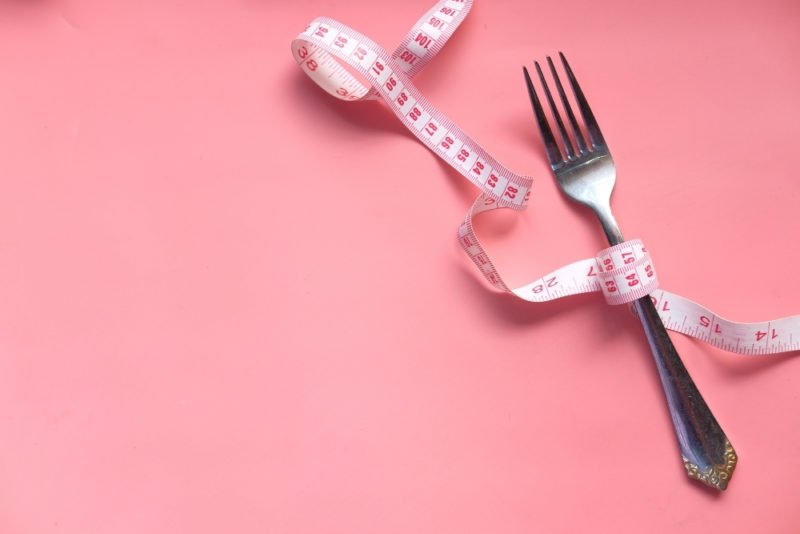
January is typically when the dieting industrial complex revs its engines and polishes off its most seductive marketing pitches. Well, it’s happening again right now, amped up by the fact that not only are we coming out of winter hibernation, but out of pandemic hibernation. If you didn’t feel good about your body shape or size in early 2020, odds are you feel worse about it now. The answer is not to try to “fix” your body by changing its size or shape.
Odds are that any not-so-great pandemic-related changes to your food and movement habits that were about coping and social distancing. And you survived, so way to go, you! Now that we are realizing that for months we haven’t been giving our bodies what they need to feel good, panic is not a helpful response. A more measured response would be to calmly assess what we want to add back to our lives now that conditions are more normal. As we feel more comfortable going to the grocery store or farmers market, hiking or biking on busy trails, even taking in-person yoga or dance classes, we can celebrate our expanded options for caring for ourselves in ways that feel good.
You could call all of this a return to wellness — both physical and mental — but the word “wellness” has unfortunately been so coopted by the diet industry that it rarely means what you think it means anymore. Many commercial diet plans — including those sold by big corporations, “wellness influencers” and doctors with a new book to peddle — are quick to say “This isn’t a diet…this is about wellness.”
Curious how these entities almost universally market wellness towards people whose bodies are deemed “too large.” What they call “wellness” unfortunately tends to take the form of restrictive food plans and exercise prescriptions that feel far more like work than play, while ignoring other aspects of health. This is discriminatory on two fronts.
- One, that if you don’t fit in a culturally accepted weight range, that you better fix yourself.
- Two, that if you do fit in that weight range, then you’re fine. You don’t need to do anything else.

What does “wellness” really mean?
Wellness should be promoted for everyone, at every weight. Weight is not synonymous with health, and despite “popular wisdom” or “common knowledge” that is is, the science does not back it up.
Study after study has examined “associations” between weight and health, and yes, some of those studies do show an association between higher weight and poorer health outcomes, but an association doesn’t prove cause and effect. (Example: If people who drive red cars are more likely to have brown hair and less likely to have blond hair, then driving a red car is associated with having brown hair, but driving a red car doesn’t cause your hair to turn brown.)
Additionally, science cannot find what it’s not looking for. Most weight-and-health studies don’t factor in fitness levels (specific “cardiorespiratory” fitness, i.e. the kind of fitness you get from challenging your heart and lungs when you exercise). Those that do? They tend to find that higher weight doesn’t mean poorer health. Even fewer studies factor in the effects of weight stigma, despite the fact that the health effects of stigma and discrimination are well known.
We can’t ignore that evidence shows that dieting is a risk factor for both eating disorders and long-term weight gain. Additionally, one little known fact (I would call it a dirty secret) of “obesity” research is that the studies comparing the health outcomes of people who have always been heavy with people who have always been thin have NOT shown that the relatively few higher weight people who manage to lose weight and keep it off are healthier in the end than people who have a stable, albeit higher, weight.
This supports the idea of advocating for good self-care and letting the body figure things out for itself — a wellness, not weight, approach.

Looking for solutions to shame in all the wrong places
Even in cases where being thin might actually have a health benefit, do you get that same benefit if you force your body down to a lower weight? No one knows. There’s a lot of money in promoting obesity as a disease, and many scientists have bought into that promotion. There are several known flaws in mainstream obesity research, including focusing on weight loss at any cost, ignoring the benefits of other lifestyle interventions (increasing movement in an enjoyable, sustainable way and improving food quality) as well as personal, social and environmental factors that may be contributing to poorer health — including stigma and shame.
I’ve received emails defending a popular decades-old commercial weight loss program (OK, Weight Watchers, or WW) by talking about the shame and stigma people in larger bodies face. I agree that that is a reality — a terrible reality. However, it is not the responsibility of the person being subjected to shame and stigma to physically alter their bodies to escape the shame and stigma. Body acceptance work, self-compassion, and the (painfully) slow-and-steady dismantling of societal norms that ignore genetic diversity are the better solutions.
Community building is another solution. One of the tragic details I’ve noticed in the scientific research on the impact of weight stigma is that people who experiences stigma, bias and discrimination because of their weight tend to inflict that same stigma on themselves, and on other people of higher body weights. This is very different from the banding together that happens with individuals who are oppressed based on other characteristics, such as race, ethnicity, religion, gender or sexual orientation. While some weight loss companies and programs (whether they claim to be selling weight loss, or simply “wellness”) may appear to offer that community support, it’s false support, based on the notion that your body is unacceptable.

A diet by any other name…is still a diet
Many people are becoming disenchanted with diets (for good reason, because they don’t work for the long term). But calling a program that sets arbitrary restriction on food (whether through counting calories, macros, points or “red foods”) a lifestyle program is whitewashing. Adding mindfulness and meditation to what is still a diet (if the primary goal is weight loss, it is a diet) is a tragic co-opting of two deeply valuable practices.
When I’ve been publicly critical of WW, I usually get a handful of people emailing me to share how positive their experience with WW has been, and challenged me on whether I fully understood the “new” WW. While I would never invalidate someone’s personal experience, because it is THEIR experience, I also have been witness to the personal experiences of many, many people who have had bad experiences with WW and Weight Watchers. Some of those experiences are from a few months ago, other are from a few decades ago. I regularly hear of similar experiences from dietitians and therapists, so it’s not like I’m living in a vacuum.
It makes me sad to hear people defend a huge corporation that makes its money by persuading people that their bodies are wrong. However, I myself spent decades thinking that dieting was not just normal, but necessary (before I went back to grad school to become a dietitian, and before I started actually reading the research on weight, dieting and health), so I get it. I’ve been deeply embedded in diet culture before, and when I was there, no one could have persuaded me that I was maybe headed down the wrong path.
Read more (from me and other people):
- Dietitian Christy Harrison’s “The Life Thief” blog post.
- A nice Washington Post article [possible paywall] from Ellie Krieger, “Why you should stop trying to lose weight.” (LOVE her cookbooks, BTW.)
- A good 2015 article in The Atlantic on the Obesity Industrial Complex, “How obesity became a disease.”
- A 2018 HuffPost Highline article from Michael Hobbes (co-host of the excellent podcast “Maintenance Phase”), “Everything you know about obesity is wrong.“
- His follow-up piece, “Weight stigma is one of the last socially acceptable forms of discrimination.”
- My 2018 article in Today’s Dietitian on “The health impact of weight stigma.” and a less researchy piece I wrote for The Seattle Times last year.
 Print This Post
Print This Post
Disclaimer: All information provided here is of a general nature and is furnished only for educational purposes. This information is not to be taken as medical or other health advice pertaining to an individual’s specific health or medical condition. You agree that the use of this information is at your own risk.
Hi, I’m Carrie Dennett, MPH, RDN, a weight-inclusive registered dietitian, nutrition therapist and body image counselor. I offer compassionate, individualized care for adults of all ages, shapes, sizes and genders who want to break free from eating disorders, disordered eating or chronic dieting. If you need to learn how to manage IBS symptoms with food, or improve your nutrition and lifestyle habits to help manage a current health concern or simply support your overall health and well-being, I help people with that, too.
Need 1-on-1 help for your nutrition, eating, or body image concerns? Schedule a free 20-minute Discovery Call to talk about how I can help you and explore if we’re a good fit! I’m in-network with Regence BCBS, FirstChoice Health and Providence Health Plan, and can bill Blue Cross and/or Blue Shield insurances in many states. If I don’t take your insurance, I can help you seek reimbursement on your own. To learn more, explore my insurance and services areas page.
 Print This Post
Print This Post






